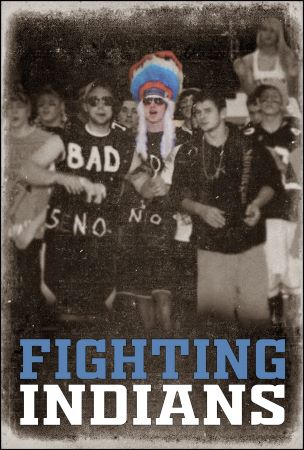
Fighting Indians 2021
Distributed by The Video Project, 145 - 9th St., Suite 230, San Francisco, CA 94103; 800-475-2638
Produced by Mark Cooley and Derek Ellis
Directed by Mark Cooley and Derek Ellis
Streaming, 108 mins
College - General Adult
Cultural Appropriation; Native Americans; Sports Mascots
Date Entered: 01/05/2023
Reviewed by Erica Swenson Danowitz, Chat Reference Librarian –Pennsylvania’s Chat with a Librarian (CWAL), Independent Contractor at Hosting Solutions & Library Consulting (HSLC); Retired Professor/Reference Librarian, Delaware County Community CollegeThe use of Native American mascots by high school and professional sports teams in the United States has existed for more than a century. Over the past fifty years, campaigns to end this troubling trend have faced resistance and mixed results. In recent years significant progress has been achieved especially with the changing of professional team mascots in Cleveland (baseball) and Washington DC (football). Fighting Indians documents the endeavors of Maine’s tribal nations to remove Native American mascotry used by Skowhegan High School which maintained the motto, "The Home of the Indians," for many years. The film begins in 2015 when attempts to change the mascot failed and concludes with a contentious 2019 re-vote by the school district on this issue. In recounting the Skowhegan struggle this documentary weaves in other stories including the troubling history of the native peoples of Maine who endured massacres, forced removals, and other atrocities at the hands of European settlers. This interweaving of narratives serves as a counterpoint to individuals in Skowhegan and elsewhere who hold the belief that Native American mascots serve to honor the cultures of indigenous peoples.
The film also provides an interesting history of the use of Native American sports mascots in the United States. This appropriation began in the nineteenth century with wild west shows and became increasingly popular as more sports teams formed. This documentary includes the poignant story of Louis Sockalexis, from Maine’s Penobscot Nation, who is considered the first known Native American professional baseball player. He played for the Cleveland Spiders who eventually changed their name to the Indians and employed the offensive Chief Wahoo mascot. The film also examines the history of the Washington DC football team and the 50-year effort to change that name which finally occurred in 2020.
Fighting Indians provides numerous scenes where Skowhegan community members debate changing or keeping the mascot. The filmmakers capture the raw emotions and the varying viewpoints related to this issue. They also demonstrate how instances of basic ignorance often transformed into manifestations of overt racism. Individuals who wanted to keep the mascots did not recognize or understand how these mascots dehumanized indigenous peoples. The film also includes texts from various social media posts related to this debate, film clips of stereotypical depictions of native peoples, and interviews with coaches, Maine tribal leaders, sports journalists, and psychologists. Although inroads have been made to eliminate native American mascots, the film concludes with the statistic that nearly 2000 K-12 schools in the United States still use Native-American themed mascots.
This film is available for internal use or with a public screening license. Fighting Indians is highly recommended for both the college and high school levels as well as the general public. This documentary could support courses in many academic disciplines including anthropology, education, law, psychology, and sociology. Fighting Indians allows viewers to walk in the shoes of individuals who for decades have attempted to address inaccurate stereotypes and remove inappropriate sports mascots. It could also serve as an insightful DEI training tool.
Awards:Official Selection: Maine International Film Festival, Red Nation International Film Festival, American Indian Film Festival, Morehouse College Human Rights Film Festival, Centre Film Festival, International Activism Film Festival
Published and licensed under the Creative Commons Attribution 4.0 license. Anyone can use these reviews, so long as they comply with the terms of the license.